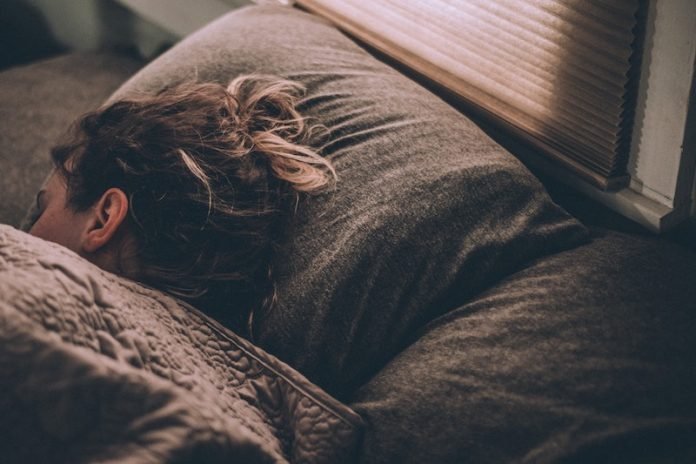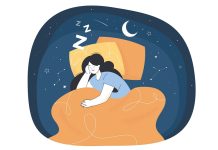
Can staying up late make you fat?
A growing body of research has suggested that poor sleep quality is linked to an increased risk of obesity by deregulating appetite, which in turn leads to more calorie consumption.
In a new study, researchers found that the direction of this reaction might actually be flipped: It’s not the sleep loss that leads to obesity, but rather that excess weight can cause poor sleep.
Scientists think that sleep is a function of the body trying to conserve energy in a setting where energy levels are going down.
The current findings suggest that if you were to fast for a day, you might get sleepy because your energetic stores would be depleted.
The team emphasized that while these findings in worms may not translate directly to humans, C. elegans offer a surprisingly good model for studying mammalian slumber.
Like all other animals that have nervous systems, they need sleep.
But unlike humans, who have complex neural circuitry and are difficult to study, a C. elegans has only 302 neurons—one of which scientists know for certain is a sleep regulator.
In humans, acute sleep disruption can result in increased appetite and insulin resistance, and people who chronically get fewer than six hours of sleep per night are more likely to be obese and diabetic.
Moreover, starvation in humans, rats, fruit flies, and worms have been shown to affect sleep, indicating that it is regulated, at least in part, by nutrient availability.
However, the ways in which sleeping and eating work in tandem has remained unclear.
In the study, the team examined the association between metabolism and sleep.
The researchers genetically modified C. elegans to “turn off” a neuron that controls sleep.
These worms could still eat, breathe, and reproduce, but they lost their ability to sleep.
With this neuron turned off, the researchers saw a severe drop in adenosine triphosphate (ATP) levels, which is the body’s energy currency.
That suggests that sleep is an attempt to conserve energy; it’s not actually causing the loss of energy.
The researchers hypothesized that the release of fat stores is a mechanism for which sleep is promoted and that the reason KIN-29 mutants did not sleep is that they were unable to liberate their fat.
To test this hypothesis, the researchers again manipulated the KIN-29 mutant worms, this time expressing an enzyme that “freed” their fat. With that manipulation, the worms were again able to sleep.
The team says this could explain one reason why people with obesity may experience sleep problems.
While there is still much to unravel about sleep, this paper takes the research community one step closer to understanding one of its core functions—and how to treat common sleep disorders.
One author of the study is David Raizen, MD, Ph.D., an associate professor of Neurology and a member of the Chronobiology and Sleep Institute at Penn.
The study is published in PLOS Biology.
Copyright © 2020 Knowridge Science Report. All rights reserved.



